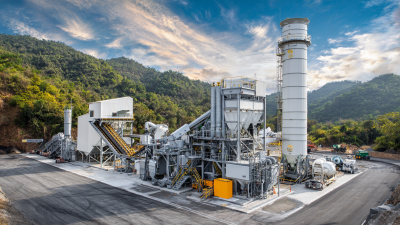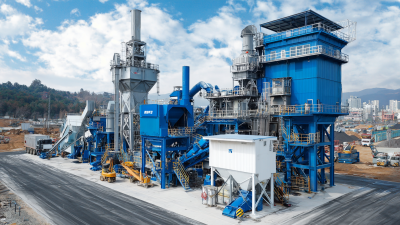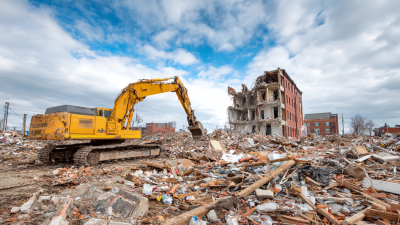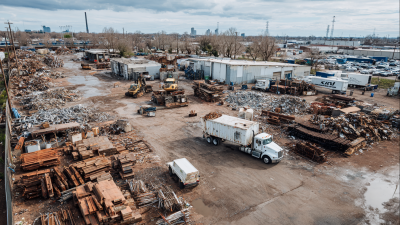5 Essential Tips for Choosing the Right Hot Mix Asphalt Plant
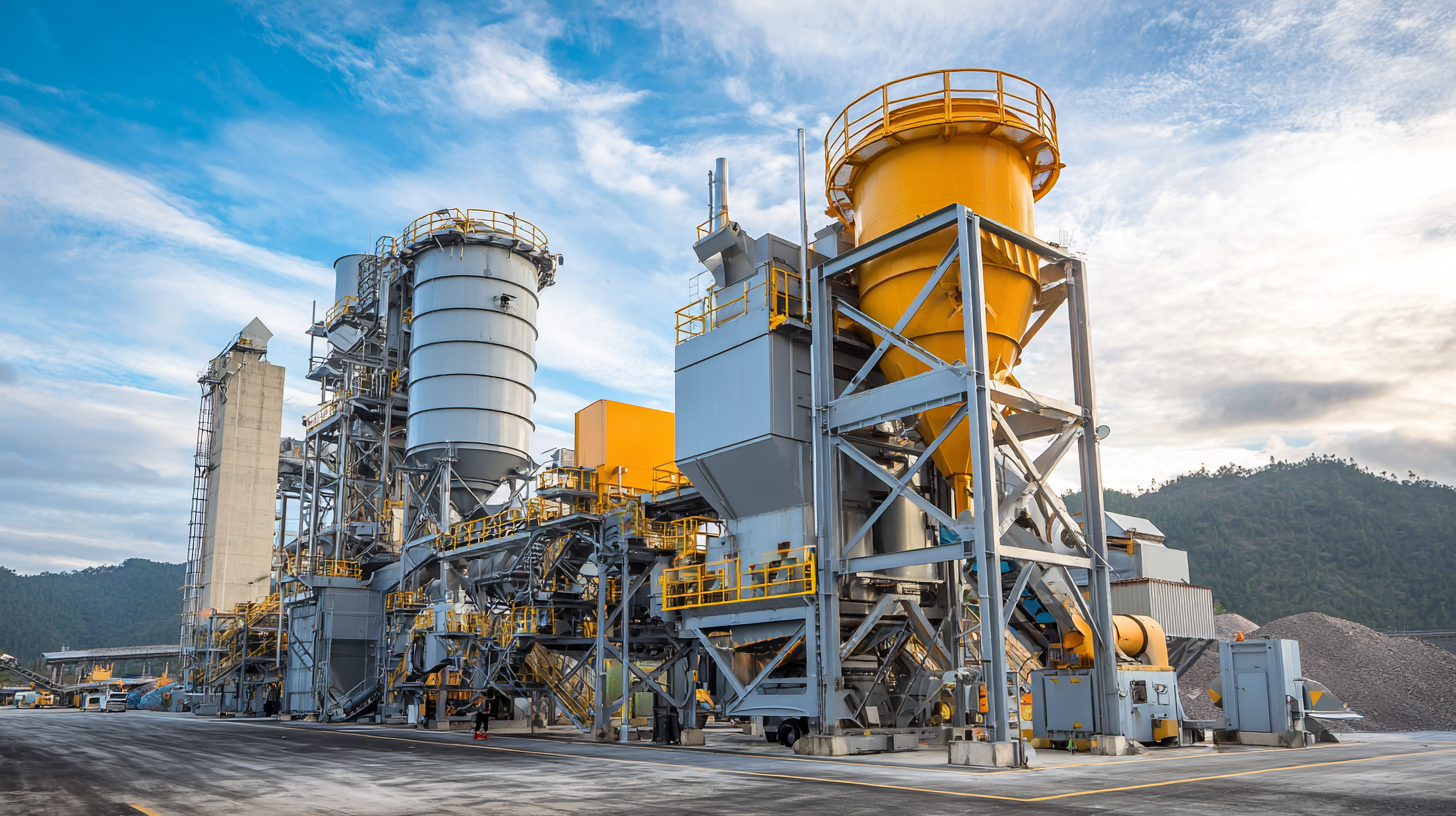 Choosing the right Hot Mix Asphalt Plant is a critical decision that can significantly impact the efficiency and quality of your paving projects. With a myriad of options available in the market, understanding the various factors that influence your choice can help ensure optimal performance and long-term benefits. This guide will provide five essential tips to navigate the selection process effectively. From evaluating production capacity and technology features to considering environmental regulations and operational costs, making an informed choice is vital. Whether you are a contractor looking to enhance productivity or a business owner aiming to invest wisely, knowing what to look for in a Hot Mix Asphalt Plant is key to achieving your project goals and ensuring sustainable success in the asphalt industry.
Choosing the right Hot Mix Asphalt Plant is a critical decision that can significantly impact the efficiency and quality of your paving projects. With a myriad of options available in the market, understanding the various factors that influence your choice can help ensure optimal performance and long-term benefits. This guide will provide five essential tips to navigate the selection process effectively. From evaluating production capacity and technology features to considering environmental regulations and operational costs, making an informed choice is vital. Whether you are a contractor looking to enhance productivity or a business owner aiming to invest wisely, knowing what to look for in a Hot Mix Asphalt Plant is key to achieving your project goals and ensuring sustainable success in the asphalt industry.
Understanding Your Project Requirements and Specifications
When selecting the right hot mix asphalt plant, understanding your project requirements and specifications is crucial. Every project has unique demands, whether it's for a small roadway or a major construction endeavor. Take the time to outline your specific needs, such as the expected volume of asphalt, the type of materials required, and any environmental concerns that must be addressed. By accurately assessing these details, you can ensure that the chosen plant will not only meet production goals but also adhere to any regulatory standards.
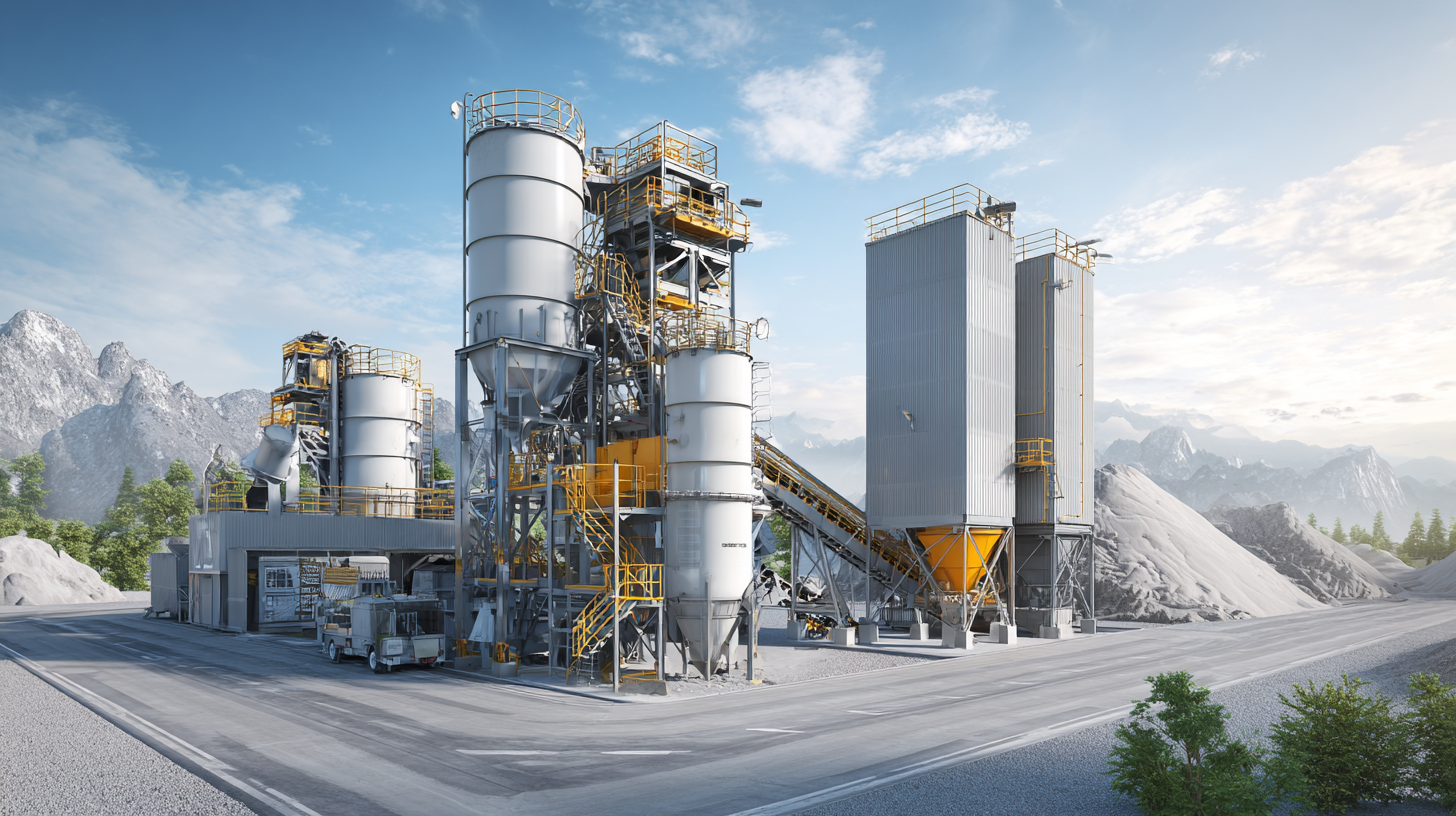
Moreover, consider the technological capabilities and compatibility of the asphalt plant with your current systems. New advancements in plant technology can streamline operations and enhance efficiency, allowing for real-time monitoring and adjustments. Just as emerging tools in other fields, like AI programming, automate complex tasks, an asphalt plant equipped with modern capabilities will facilitate a smoother workflow. Ultimately, making a well-informed decision will significantly impact the success of your project and the quality of the final product.
Evaluating the Technology and Features of Asphalt Plants
When selecting a hot mix asphalt plant, evaluating the technology and features is crucial to ensure optimal performance and efficiency. Modern asphalt plants come equipped with advanced technologies that significantly enhance production quality and speed. One tip for choosing the right plant is to assess the control systems available. Look for plants that offer automated features, as these can streamline operations, reduce labor costs, and minimize human error.
Another important consideration is the plant's flexibility. Ensure that the asphalt plant can accommodate various mix designs and adapt to changes in aggregate materials. This versatility allows for the production of a wider range of asphalt mixtures, which can be essential for meeting specific project requirements. Additionally, consider the environmental impact of the plant's technology. Opting for a plant with high energy efficiency and lower emissions not only supports sustainable practices but also complies with increasingly stringent regulations.
Lastly, don’t overlook the importance of after-sales service and support. A reputable manufacturer should offer comprehensive training and maintenance services to ensure that your plant operates optimally throughout its lifespan. By evaluating these aspects, you can make a more informed decision that aligns with your project goals.
5 Essential Tips for Choosing the Right Hot Mix Asphalt Plant - Evaluating the Technology and Features of Asphalt Plants
| Feature |
Description |
Importance |
| Production Capacity |
The maximum amount of asphalt that can be produced per hour. |
High capacity increases efficiency and meets project demands. |
| Technology Used |
Type of technology (batch mix or drum mix) affecting quality and cost. |
Choosing the right technology ensures quality asphalt production. |
| Energy Efficiency |
Measures how well the plant uses energy sources during production. |
Higher efficiency leads to lower operational costs and environmental impact. |
| Control Systems |
Advanced automation systems for monitoring and controlling production. |
Enhanced control improves product consistency and reduces waste. |
| Maintenance and Support |
Availability of spare parts and technical assistance. |
Good support minimizes downtime and keeps production running smoothly. |
Assessing the Reliability and Reputation of Manufacturers
When selecting a hot mix asphalt plant, assessing the reliability and reputation of the manufacturers is crucial. Start by researching their history in the industry. A manufacturer with a longstanding presence typically demonstrates stability and consistency in their products and services. Look for companies that have garnered positive feedback from existing customers; testimonials and case studies can provide valuable insights into the operational effectiveness and durability of their plants.
Another essential factor is the manufacturer's adherence to industry standards and regulations. Reliable manufacturers will often display certifications and compliance with both local and international guidelines. Additionally, consider the company’s commitment to innovation and technology. Manufacturers that invest in advanced machinery and eco-friendly practices are likely to produce higher-quality asphalt mixes, ensuring better performance for your projects. Engaging with the manufacturer's support and after-sales service can also be indicative of their overall reliability, so choose a partner that prioritizes customer satisfaction and offers comprehensive support.
5 Essential Tips for Choosing the Right Hot Mix Asphalt Plant
This chart illustrates the importance ratings of various factors to consider when choosing a hot mix asphalt plant. Reliability is the most critical factor, followed closely by the manufacturer's reputation.
Considering Cost-Effectiveness and Return on Investment
When investing in a hot mix asphalt plant, cost-effectiveness and return on investment (ROI) are paramount considerations. According to the National Asphalt Pavement Association (NAPA), the average lifespan of asphalt pavement can be up to 20 years with proper maintenance, yielding high long-term returns. This underscores the importance of selecting equipment that not only meets current production needs but also enhances operational efficiency and minimizes long-term costs.
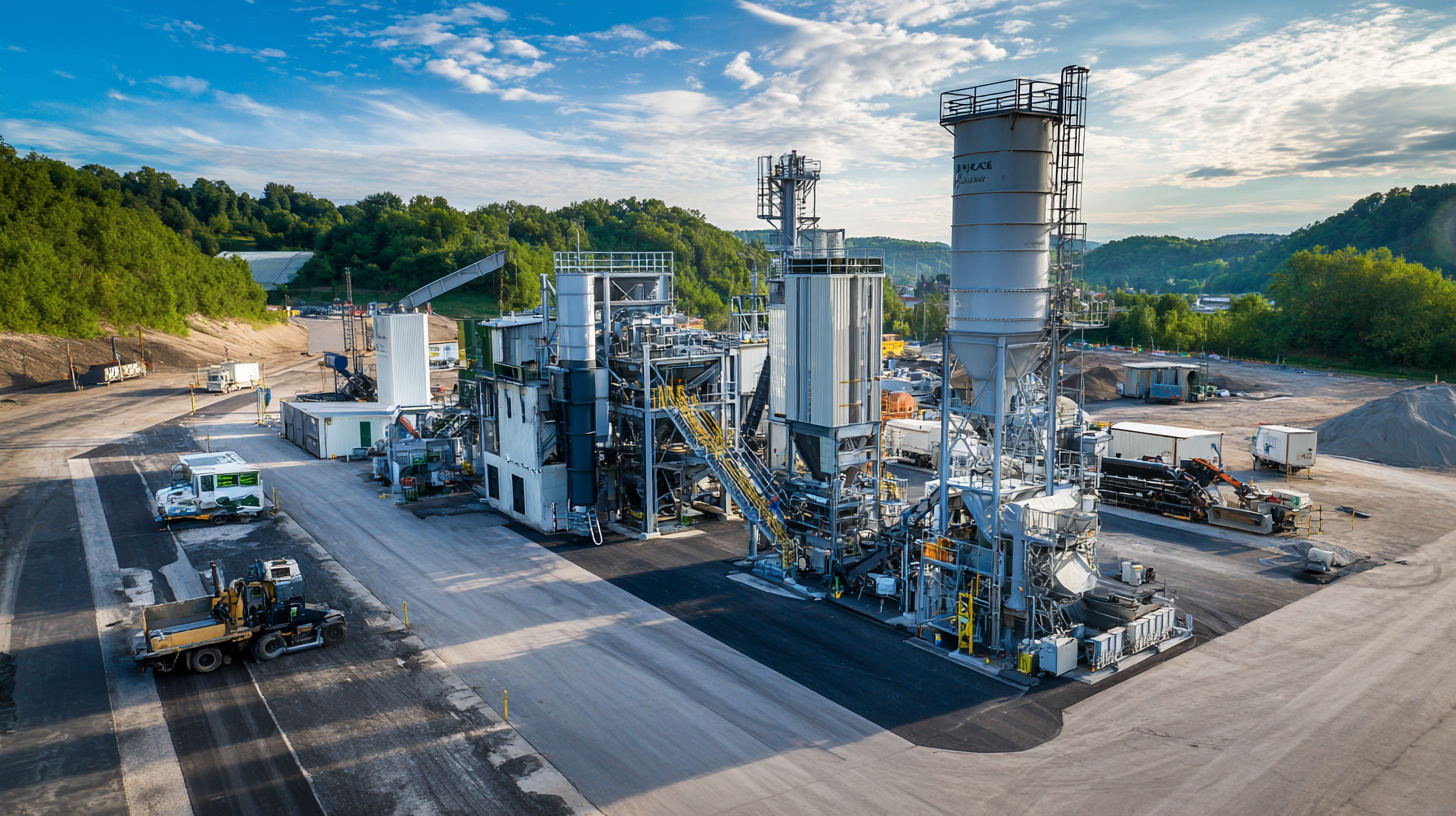
In addition, a study by the Federal Highway Administration highlighted that optimizing asphalt plant operations can lead to a reduction in production costs by up to 15%. When choosing a plant, look for features such as energy-efficient technologies and automated processes that can streamline operations. Investing in a plant with a proven track record for durability and efficiency can significantly boost ROI, ensuring that any upfront costs are outweighed by savings and increased profitability over time. Flexibility in production capabilities also allows firms to adapt to changing market demands, further solidifying financial advantages in a competitive landscape.
Ensuring Compliance with Environmental Regulations and Standards
When choosing the right hot mix asphalt plant, one of the key factors to consider is compliance with environmental regulations and standards. As global awareness regarding sustainable practices grows, industries are increasingly required to meet stringent environmental, social, and governance (ESG) standards. This is particularly relevant given the evolving regulatory landscape, where nations like India and many in the European Union are enforcing stricter compliance measures across various sectors, including construction and manufacturing.
One essential tip is to thoroughly research the specific environmental regulations applicable in your region. Understanding local emission standards and waste management rules can prevent costly fines and project delays. Additionally, it’s crucial to select a plant that features advanced technology designed to minimize environmental impact, such as systems for recycling materials or reducing emissions. This not only ensures compliance but also aligns your operations with growing market demand for sustainability.
Engaging with experts who specialize in environmental compliance can further fortify your selection process. They can provide insights on the latest trends in regulatory frameworks and help identify plants that are already compliant with upcoming regulations. Proactively ensuring that your hot mix asphalt plant can adapt to future environmental standards will not only support your legal obligations but also enhance your company's reputation for corporate responsibility.

Home
About Us
Products
 Concrete Mixing Plant
Concrete Mixing Plant
 HZS Series Belt Concrete Mixing Plant
HZS Series Belt Concrete Mixing Plant
 HZS Series Bucket-Lifting Type Container Concrete Mixing Plant
HZS Series Bucket-Lifting Type Container Concrete Mixing Plant
 HZS60 Mobile Concrete Mixing Plant
HZS60 Mobile Concrete Mixing Plant
 HZS Series Bucket-Lifting Type Concrete Mixing Plant
HZS Series Bucket-Lifting Type Concrete Mixing Plant
 HZS Series Mobile Concrete Mixing Plant
HZS Series Mobile Concrete Mixing Plant
 HZS Series Top-Mounted Concrete Mixing plant
HZS Series Top-Mounted Concrete Mixing plant
 HZS Series Semi-Top Mounted Concrete Mixing Plant
HZS Series Semi-Top Mounted Concrete Mixing Plant
 Stabilized Soil Mixing Plant
Stabilized Soil Mixing Plant
 Asphalt Mixing Plant
Asphalt Mixing Plant
 Sand & Gravel Crushing and Screening Plant
Sand & Gravel Crushing and Screening Plant
 RTPF350DS Crawler Mobile Impact Crushing Plant
RTPF350DS Crawler Mobile Impact Crushing Plant
 RT116JH Crawler Mobile Jaw Crushing Plant
RT116JH Crawler Mobile Jaw Crushing Plant
 RT116JE Crawler Mobile Jaw Crushing Plant
RT116JE Crawler Mobile Jaw Crushing Plant
 RT300CE Crawler Mobile Cone Crushing Plant
RT300CE Crawler Mobile Cone Crushing Plant
 RT300CH Crawler Mobile Cone Crushing Plant
RT300CH Crawler Mobile Cone Crushing Plant
 RT5015H Mobile Scalping Screen
RT5015H Mobile Scalping Screen
 RT315VSIE Crawler Mobile Sand Maker
RT315VSIE Crawler Mobile Sand Maker
 RT3YK6020 Crawler Mobile Screening Plant
RT3YK6020 Crawler Mobile Screening Plant
 RT3YK6020M Modular Screening Plant
RT3YK6020M Modular Screening Plant
 RTF260M Modular Counterattack Crushing and Screening Integrated Machine
RTF260M Modular Counterattack Crushing and Screening Integrated Machine
 RTF350M Modular Impact Crushing Plant
RTF350M Modular Impact Crushing Plant
 RTF450M Modular Impact Crushing Plant
RTF450M Modular Impact Crushing Plant
 Construction Waste Resourceful Treatment Line
Construction Waste Resourceful Treatment Line
Performances
Video
News
Blog
Contact Us
 WDB Series Foundation-Free Stability Soil Mixing Plant
WDB Series Foundation-Free Stability Soil Mixing Plant LCB Series Emulsified Asphalt Cold Regeneration Secondary Mixing Plant
LCB Series Emulsified Asphalt Cold Regeneration Secondary Mixing Plant LB Series Asphalt Mixing Plant
LB Series Asphalt Mixing Plant LBR Series Integrated Asphalt Mixing Plant
LBR Series Integrated Asphalt Mixing Plant LBRN Series Counterflow Integral Asphalt Mixing Plant
LBRN Series Counterflow Integral Asphalt Mixing Plant RZS Series Asphalt Mixing Plant
RZS Series Asphalt Mixing Plant RTZS120 Series RAP Crushing & Screening Plant
RTZS120 Series RAP Crushing & Screening Plant Construction Waste Resourceful Treatment Line
Construction Waste Resourceful Treatment Line


